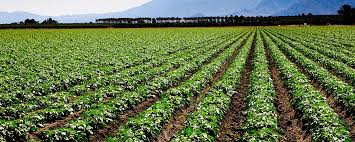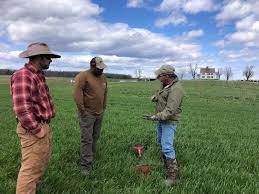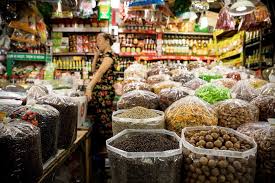Improving food security involves a multi-faceted approach that addresses the underlying causes of food insecurity. Strategies should focus on enhancing agricultural productivity, ensuring efficient supply chains, promoting sustainable practices, and supporting local food systems.
By integrating these strategies, communities can build resilience against food insecurity and enhance access to nutritious food for all.
Understanding the Factors Affecting Food Security
1. Economic Factors: Economic stability, income levels, and market access play crucial roles in determining individuals’ ability to afford food. Low-income populations are particularly vulnerable to food insecurity.
2. Environmental Factors: Climate change, natural disasters, and resource depletion can significantly impact food production and availability, making it essential to consider environmental sustainability in food security strategies.
3. Political Stability: Political stability and effective governance are vital for ensuring that food systems function efficiently and that resources are distributed equitably.
4. Social Factors: Social norms, education, and cultural practices influence dietary choices and access to food, affecting overall food security in communities.
Strengthening Agricultural Production

1. Research and Innovation: Investing in agricultural research can lead to the development of improved crop varieties and farming techniques, increasing yields and resilience.
2. Access to Resources: Providing farmers with access to quality seeds, fertilizers, and water resources can enhance productivity and food production.
3. Training and Education: Educating farmers on best practices and sustainable farming methods can improve agricultural productivity and food quality.
4. Financial Support: Access to credit and financial resources enables farmers to invest in their operations, leading to increased production and food security.
Enhancing Supply Chain Resilience
1. Efficient Logistics: Streamlining supply chains can reduce food loss and waste, ensuring that more food reaches consumers.
2. Technology Integration: Utilizing technology, such as blockchain and data analytics, can improve traceability and transparency in the supply chain, enhancing food safety and security.
3. Diversification: Diversifying supply sources can reduce dependency on single suppliers and improve resilience against disruptions, such as natural disasters or market fluctuations.
4. Building Local Partnerships: Collaborating with local producers, distributors, and retailers can strengthen the supply chain and enhance food availability within communities.
Promoting Sustainable Farming Practices
1. Agroecology: Implementing agroecological practices can enhance soil health, biodiversity, and resilience to climate change, contributing to sustainable food production.
2. Organic Farming: Promoting organic farming can reduce chemical inputs, improve soil health, and support local ecosystems, leading to sustainable food systems.
3. Integrated Pest Management: Utilizing integrated pest management techniques can minimize pesticide use and promote environmental sustainability in agriculture.
4. Water Conservation: Implementing water-efficient irrigation practices can conserve water resources while maintaining agricultural productivity.
Encouraging Local Food Systems
1. Community-Supported Agriculture (CSA): Promoting CSA programs can strengthen local food networks, enhance community engagement, and improve access to fresh produce.
2. Farmers’ Markets: Supporting farmers’ markets can create direct sales opportunities for local producers, enhancing community access to fresh and nutritious food.
3. Local Food Policies: Implementing policies that support local food production and distribution can foster food sovereignty and empower communities to take control of their food systems.
4. Education and Awareness: Raising awareness about the importance of local food systems can encourage consumers to support local producers, contributing to a more resilient food system.
Read Also: 14 Medicinal Health Benefits of Epimedium grandiflorum (Horny Goat Weed)
Investing in Technology and Innovation

1. Agricultural Technology: Investing in advanced agricultural technologies, such as precision farming, can optimize resource use, improve crop yields, and reduce waste.
2. Research and Development: Supporting research initiatives can lead to breakthroughs in crop resilience, pest management, and sustainable farming practices, ultimately enhancing food production.
3. Digital Solutions: Utilizing digital platforms for market access, information sharing, and supply chain management can empower farmers and improve food distribution.
4. Climate-Smart Technologies: Implementing technologies that are adaptable to climate change, such as drought-resistant crops and efficient irrigation systems, can safeguard food production against climate-related challenges.
Supporting Smallholder Farmers
1. Access to Resources: Providing smallholder farmers with access to quality inputs, technology, and financial services can enhance their productivity and income.
2. Training and Capacity Building: Offering training programs on sustainable agricultural practices and business skills can empower smallholder farmers to improve their operations.
3. Market Access: Facilitating access to markets through cooperatives or direct sales can help smallholder farmers receive fair prices for their products.
4. Policy Support: Advocating for policies that recognize the contributions of smallholder farmers can create a more favorable environment for their growth and development.
Improving Nutrition and Diet Diversity
1. Promoting Nutrient-Rich Crops: Encouraging the cultivation of diverse, nutrient-rich crops can improve dietary diversity and nutritional outcomes for communities.
2. Education on Nutrition: Providing education on the importance of balanced diets can raise awareness about food choices and their impacts on health.
3. Community Gardens: Supporting the establishment of community gardens can enhance access to fresh produce and promote healthy eating habits.
4. Food Fortification: Implementing food fortification programs can help address micronutrient deficiencies in vulnerable populations.
Implementing Effective Policy Frameworks
1. Comprehensive Food Policies: Developing comprehensive food policies that address production, distribution, and consumption can create a coherent approach to food security.
2. Supportive Regulatory Frameworks: Establishing supportive regulations for agricultural practices, food safety, and trade can enhance the resilience of food systems.
3. Monitoring and Evaluation: Implementing monitoring and evaluation mechanisms can assess the effectiveness of food security strategies and inform policy adjustments.
4. Stakeholder Engagement: Engaging stakeholders from various sectors in policy development can ensure that strategies are inclusive and address the needs of diverse populations.
Read Also: Recommended Fertilizer Placement Methods
The Role of Education and Awareness

1. Food Literacy Programs: Implementing food literacy programs can educate consumers about nutrition, sustainable food choices, and the importance of supporting local food systems.
2. Training for Farmers: Providing training for farmers on sustainable practices, market trends, and business skills can enhance their productivity and livelihoods.
3. Awareness Campaigns: Running awareness campaigns can highlight the importance of food security and encourage community involvement in food system initiatives.
4. Collaboration with Educational Institutions: Partnering with schools and universities can promote research, innovation, and education related to food security and agricultural practices.
Collaborating with International Organizations
1. Global Partnerships: Collaborating with international organizations, such as the Food and Agriculture Organization (FAO) and the World Food Programme (WFP), can provide access to resources, expertise, and funding.
2. Sharing Best Practices: Engaging in knowledge exchange with other countries can facilitate the sharing of best practices in food security and sustainable agriculture.
3. Addressing Global Challenges: Working with international organizations can help address global challenges, such as climate change, food waste, and market access, which impact food security.
4. Leveraging Funding Opportunities: Tapping into international funding programs can support local initiatives aimed at improving food security and agricultural resilience.
By adopting these strategies, communities can enhance food security, improve access to nutritious food, and build resilience against food insecurity. It is essential to recognize the interconnectedness of these strategies and the importance of collaboration among stakeholders at all levels.
Do you have any questions, suggestions, or contributions? If so, please feel free to use the comment box below to share your thoughts. We also encourage you to kindly share this information with others who might benefit from it. Since we can’t reach everyone at once, we truly appreciate your help in spreading the word. Thank you so much for your support and for sharing!






